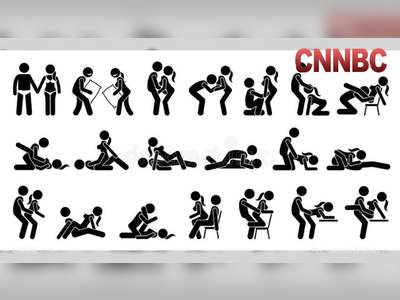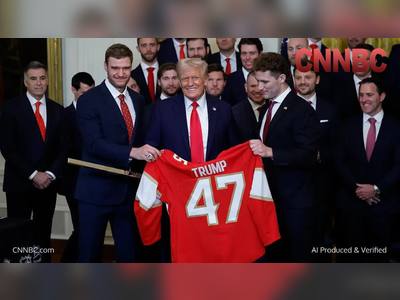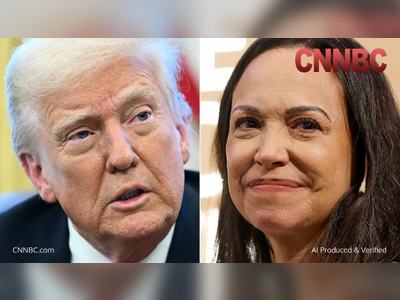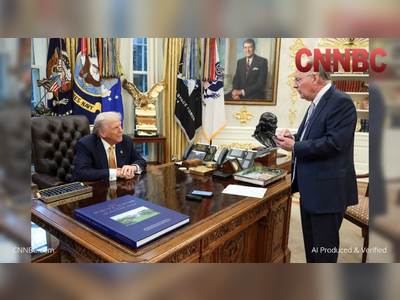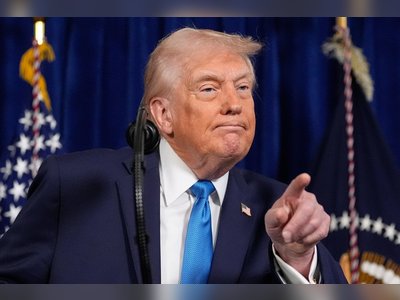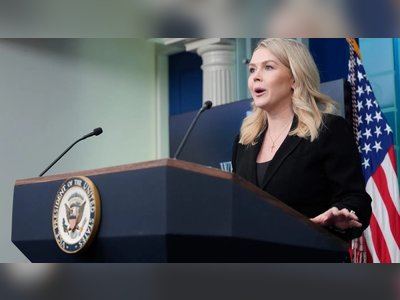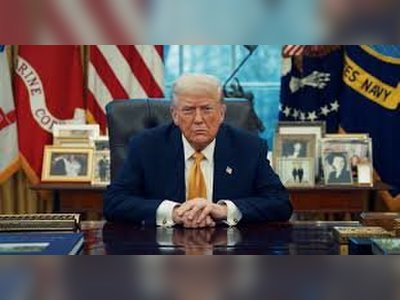
EU Strategizes Response to US Tariffs Amid Global Trade Concerns
European trade ministers convene to discuss coordinated countermeasures against US tariffs while exploring new alliances.
Brussels – In response to the recent tariff measures imposed by the United States under President Donald Trump, the European Union is formulating a strategic approach aimed at exerting pressure on the US administration.
This strategy, which is still in development, seeks to encourage a reversal of the tariffs and mitigate potential trade conflicts.
A meeting of EU trade ministers in Luxembourg has centered on transatlantic relations, emphasizing the urgency of reaching a united front against US trade policy.
Sweden's Trade Minister, Benjamin Dous, has articulated a call for targeted and proportionate counter-measures.
He stated that a well-developed response is essential to compel Washington to reconsider its tariff decisions, suggesting that collaborations between the EU, Canada, and China may intensify the pressure on the United States.
The relationship between Europe and China, despite historical tensions, is under consideration as EU officials acknowledge China's role as a significant trading partner.
Dutch Foreign Trade Minister, Reinette Klever, reaffirmed the importance of the trading relationship with China, noting that discussions concerning reciprocity conditions remain crucial.
Despite differing viewpoints about China, a collective European stance aims to achieve a negotiated resolution without escalating the trade conflict.
Latvia's Foreign Minister highlighted the need for a paradigm shift in the approach to negotiations, arguing for a strategy that prioritizes dialogue before any actions are taken.
Poland's Undersecretary for Economic Development, Michał Baranowski, reiterated this aim, indicating a desire to work collaboratively within the EU framework.
Italy has also stressed the importance of measured responses to ensure the EU does not appear passive in the face of US tariffs.
Foreign Minister Antonio Tajani emphasized the necessity of negotiation and solidarity among EU member states to address the challenges presented by the tariffs.
He expressed support for the initiatives led by EU Trade Commissioner Maroš Šefčovič.
The evolving discourse surrounding tariffs highlights an emerging shift in traditional trade models.
The US has historically advocated for an agreement structure that favors American economic interests, which has led to a reevaluation of free trade principles in certain European circles.
This realignment is exemplified by dissatisfaction within Germany, where outgoing Economy Minister Robert Habeck criticized high-profile figures who advocate for a zero-tariff trade area without addressing the foundational issues identified by the current US administration.
The EU's collective effort to navigate these challenges underscores the complexity of current global trade dynamics, with ongoing discussions aimed at maintaining and enhancing trade relations while responding to the unilateral measures from the United States.
This strategy, which is still in development, seeks to encourage a reversal of the tariffs and mitigate potential trade conflicts.
A meeting of EU trade ministers in Luxembourg has centered on transatlantic relations, emphasizing the urgency of reaching a united front against US trade policy.
Sweden's Trade Minister, Benjamin Dous, has articulated a call for targeted and proportionate counter-measures.
He stated that a well-developed response is essential to compel Washington to reconsider its tariff decisions, suggesting that collaborations between the EU, Canada, and China may intensify the pressure on the United States.
The relationship between Europe and China, despite historical tensions, is under consideration as EU officials acknowledge China's role as a significant trading partner.
Dutch Foreign Trade Minister, Reinette Klever, reaffirmed the importance of the trading relationship with China, noting that discussions concerning reciprocity conditions remain crucial.
Despite differing viewpoints about China, a collective European stance aims to achieve a negotiated resolution without escalating the trade conflict.
Latvia's Foreign Minister highlighted the need for a paradigm shift in the approach to negotiations, arguing for a strategy that prioritizes dialogue before any actions are taken.
Poland's Undersecretary for Economic Development, Michał Baranowski, reiterated this aim, indicating a desire to work collaboratively within the EU framework.
Italy has also stressed the importance of measured responses to ensure the EU does not appear passive in the face of US tariffs.
Foreign Minister Antonio Tajani emphasized the necessity of negotiation and solidarity among EU member states to address the challenges presented by the tariffs.
He expressed support for the initiatives led by EU Trade Commissioner Maroš Šefčovič.
The evolving discourse surrounding tariffs highlights an emerging shift in traditional trade models.
The US has historically advocated for an agreement structure that favors American economic interests, which has led to a reevaluation of free trade principles in certain European circles.
This realignment is exemplified by dissatisfaction within Germany, where outgoing Economy Minister Robert Habeck criticized high-profile figures who advocate for a zero-tariff trade area without addressing the foundational issues identified by the current US administration.
The EU's collective effort to navigate these challenges underscores the complexity of current global trade dynamics, with ongoing discussions aimed at maintaining and enhancing trade relations while responding to the unilateral measures from the United States.


